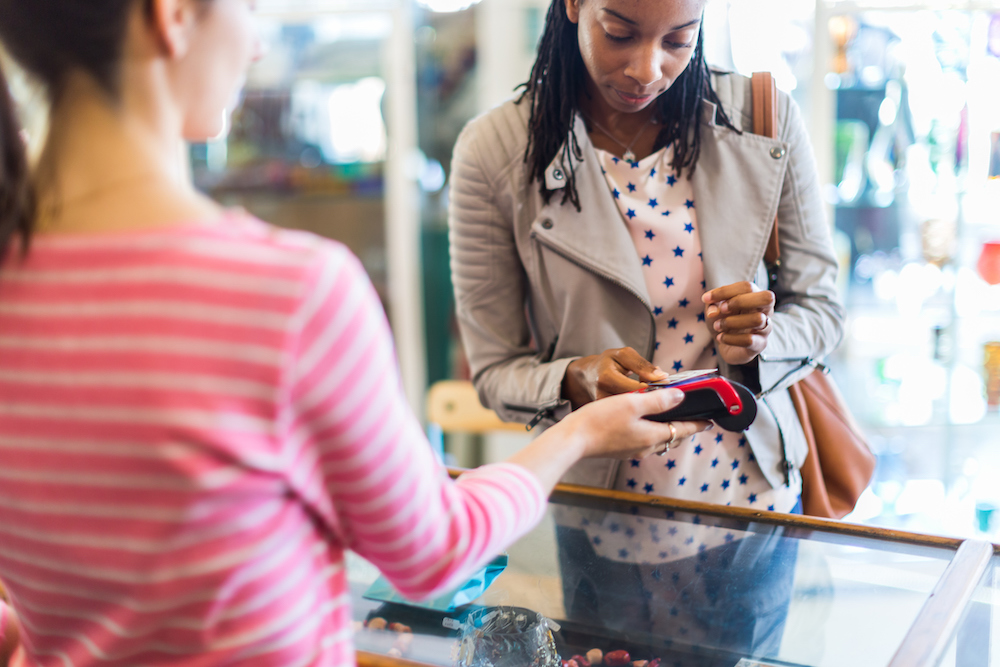- Fintech is enabling mutual aid at a new and exciting scale
- Fintech for financial inclusion is uniquely positioned to help connect SMEs to needed resources
- Populism is deepening connections between local networks amid rising distrust of institutions
Updated at 1 p.m. May 5, 2020 to reflect new information.
The COVID-19 pandemic is bringing us back to our economic roots as human beings. But this time, there are new tools to make it work.
In the U.S., stories about big banks and businesses taking advantage of the lax rules for the Paycheck Protection Program (PPP) are feeding ongoing populist distrust of institutions. So it’s not surprising that the digital financial services seeing a surge right now are smaller, scrappier apps that can feel more intimate than a brand-name bank.
Digital was already becoming the new normal for financial services when, as with so many things, the coronavirus shifted it into overdrive. Now, fintech apps and platforms for peer-to-peer transactions and providing loans or credit to small and mid-sized enterprises (SMEs) are becoming the glue holding together an emerging web of hyperlocal mutual aid networks.
What is mutual aid, exactly? At a basic level, it’s a concept as old as humanity: the idea of reciprocal giving and sharing within a community, whether defined by geography or vulnerability or other factors. It has a presence (and unique names) in multiple cultures around the world. Now, technology plays an integral role in making mutual aid happen — from the Google Sheets where individuals pool requests to the CashApp transactions that get money from one person to another. For many people, the silver lining in COVID-19 is the deeper connection to community; trust in the guy up the block is likely stronger than trust in, say, Wells Fargo.
GiveDirectly, perhaps the most well-known mutual aid platform, takes the mutual aid concept beyond geographic borders, allowing users to give any amount to either a specific person making a request or a general fund. In New York City, GiveDirectly is working with Propel — the architects of the Fresh EBT app — to identify low-income residents to receive direct cash transfers from the general fund.
But it’s not just donations that are part of this fabric. Accion Venture Lab, which invests in scalable fintech for financial inclusion around the world, has a portfolio emblematic of how applications are evolving to meet the needs of SMEs as those needs grow increasingly urgent: using alternative data to assess credit worthiness and connecting them to peer-to-peer lending platforms and business banking tools tailored for SMEs in emerging markets.
“Inclusive fintech models have always been important to reach segments of the population who are low-income and traditionally underserved,” said Tahira Dosani, Accion Venture Lab’s managing director, in an interview with Karma. “In the current COVID-19 environment, they have become critical to enable fast, inclusive, digital access to financial tools and products that individuals and small businesses will need to navigate the current crisis and rebuild from it.”
Some of these startups are taking mutual aid fully into the digital age. One is eMoneyPool, which has received backing from Accion as well as SEED SPOT and VilCap Investments. In eMoneyPool’s mutual aid model, members regularly contribute a fixed amount each month and alternate which member gets the total pooled amount as a gift or loan. In addition to the lump-sum payment they receive on schedule, members can also build a credit history. Self, backed by Accion and Techstars, has a similar model that allows people with little or no credit history to build both savings and a credit history through virtual credit-builder loans.
As social distancing measures keep most of us in our homes, the personal touch that comes with an app linking a business owner or struggling entrepreneur with neighbors, networks, and even potential investors makes a huge difference. These fintech tools were already on the rise, but as the groundwork for trust in an uncertain era, their future looks bright.






















